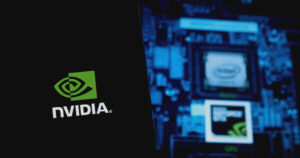Navigating Innovation: NVIDIA’s Bold Stand Against the Biden Administration’s ‘AI Diffusion’ Rule
By Terrill Dicki
January 13, 2025
In a compelling assertion of its commitment to innovation and economic prosperity, NVIDIA has come out swinging against the Biden Administration’s proposed ‘AI Diffusion’ rule. The tech giant warns that this regulatory initiative could place significant constraints on the U.S. technology sector, potentially stifling growth and jeopardizing American leadership in the global arena.

The Stakes: Balancing Progress and Regulation
NVIDIA’s concerns are not just about corporate freedom; they reflect a broader worry over innovation in the tech landscape. As noted by Ned Finkle, NVIDIA’s vice president of government affairs, the historical absence of stringent regulations around computing and software has been a pivotal factor in the U.S.’s sustained global influence. By imposing restrictions that could limit access to mainstream computing applications, the Biden Administration risks hobbing the very engine that has propelled American technological advancements for decades.
Moreover, the AI sector’s rapid evolution has already established itself as a cornerstone of the modern economy. NVIDIA credits advancements in AI technology—encouraged under the previous Trump Administration—as a catalyst for growth across various industries, from healthcare to entertainment. With such tremendous potential at stake, many industry experts echo NVIDIA’s alarm over what is perceived as a potentially damaging regulation.
Global Trends: The Ripple Effect of Regulation
The implications of the ‘AI Diffusion’ rule extend far beyond U.S. borders. NVIDIA warns that this bureaucratic approach might not only inhibit innovation domestically but could also create a ripple effect that stifles global technological progress. The rule’s secretive drafting process and lack of comprehensive legislative review have raised eyebrows in the tech community. Critics argue that such conditions pose a threat to competition, ultimately damaging the U.S.’s standing in the worldwide tech race.
Furthermore, framed as an ‘anti-China’ initiative, the rule may not serve its intended purpose. Instead of safeguarding national security, NVIDIA posits it might actually erode U.S. competitiveness by hampering innovation. In a market where agility and adaptability are crucial, cumbersome regulations threaten to alienate U.S. companies from the technology landscape.
A Call to Action: Reevaluating Policy Direction
While the proposed rule is set to remain unenforced for 120 days, the apprehension it has already generated is palpable. NVIDIA and like-minded industry leaders are advocating for a reevaluation of this regulatory framework. They urge policymakers to embrace a more progressive approach, one that champions innovation over restrictions; after all, the undeniable truth is that the U.S. technological advantage was forged in a crucible of competition and creativity, not constricted by governmental controls.
At Extreme Investor Network, we believe in the power of informed discussions and responsible innovation. As the landscape of technology continues to evolve, we will keep you informed about the developments impacting not only the cryptocurrency world but also the broader tech sector. Join us in watching this critical situation unfold, and stay connected to ensure you remain at the forefront of technology trends and investment opportunities.
For a deeper dive into NVIDIA’s position, check out their official blog.
Image source: Shutterstock
Readers, your thoughts matter! What do you think about the proposed ‘AI Diffusion’ rule? Share your insights and engage in the conversation below.

